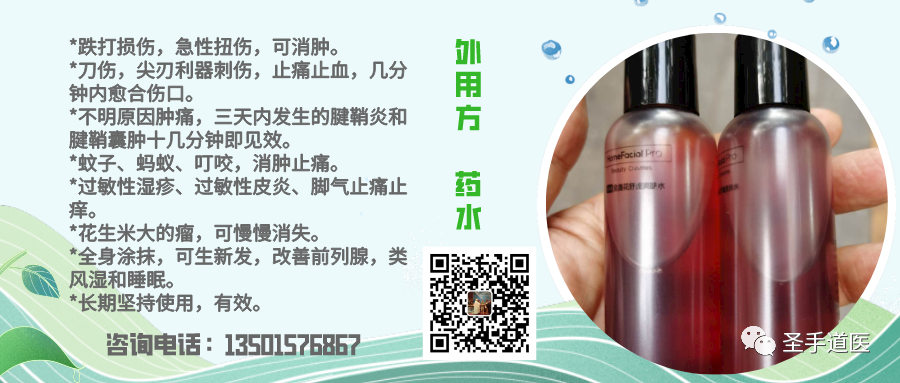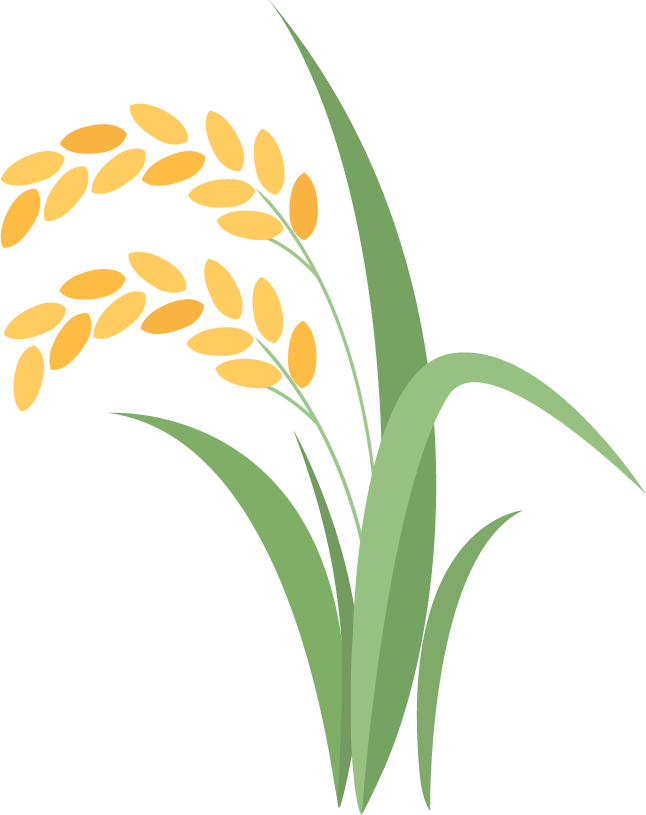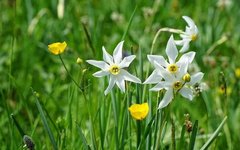
In Traditional Chinese Medicine (TCM), the five organs refer to Xin (Heart), Gan (Liver), Pi (Spleen), Fei (Lung), and Shen (Kidney).
The common physiological characteristics of the five organs are the transformation and storage of vital essence, and they can house the spirit, thus being referred to as “Shen Zang” (spiritual organs). The Huangdi Neijing states: “The so-called five organs are those that store vital essence and do not leak, hence they are full but cannot be solid.” In the Huangdi Neijing, it is also stated: “The five organs are responsible for housing the spirit, blood, qi, and soul.”
TCM believes that the five organs are the center of human life activities, with mental consciousness activities belonging to the five organs. Together with the six fu organs, they connect the body’s internal and external structures, forming a unified whole. Although the functions of the five organs are distinct, they coordinate with each other to maintain the life process.

1. The Ruler’s Organ: Xin (Heart)
When playing chess, regardless of whether a rook or knight is lost, as long as the king is still there, the game is not lost; however, if the king is captured, no matter how many pieces you have, you have lost.
The position of the heart among the five organs is akin to the king on the chessboard, thus the Huangdi Neijing refers to the heart as the “Ruler’s Organ,” governing the circulation of qi and blood throughout the body.
1.1 Xin Cang Shen (Heart Houses the Spirit)
TCM states that when the heart houses the spirit, and the qi and blood of the heart are abundant, a person will have a clear mind, quick thinking, and sweet sleep. Conversely, if a person experiences memory decline, shallow sleep, and frequent dreams, it indicates insufficient heart qi and blood, and one should quickly replenish it.
1.2 Da Xi Shang Xin (Excessive Joy Harms the Heart)
TCM believes that excessive joy can harm the heart. This means that excessive excitement can impair heart function, as exemplified by the character Fan Jin in the story of “The Examination.”
1.3 Xin Kai Qiao Yu She (Heart Opens to the Tongue)
TCM assesses the function of the heart by observing the shape and color of the tongue, as well as the fluency of speech. For instance, individuals who frequently have ulcers on the tip of the tongue may have excessive heart fire; those who often stutter while speaking may be overly fatigued, indicating weak heart qi; and if the veins under the tongue are dark and swollen, it suggests cardiovascular issues such as arteriosclerosis.
1.4 Xin Huo Wang Zheng Zhuang (Symptoms of Excessive Heart Fire)
Abnormal heart fire function often presents with the following symptoms: palpitations, chest pain, cyanosis of lips and nails, mouth ulcers, insomnia with vivid dreams, neurasthenia, coronary heart disease, etc. What good methods does TCM offer for these symptoms?
1.5 Yang Xin Shi Liao (Nourishing the Heart with Diet)
According to the five-element theory of harmony between heaven and man, red foods such as red dates, red peppers, adzuki beans, cherries, chicken and duck blood, and longan are related to the heart fire system and can nourish the heart.
The best foods for clearing heart fire are lotus seeds and bitter melon, both of which are bitter and belong to the heart fire system, capable of clearing and draining heart fire.
In daily life, frequently pronouncing the sound “he” is also beneficial for heart function.
1.6 Jing Luo Tiao Li (Meridian Regulation)
Internally, we can promote the circulation of heart qi and blood through simple methods such as tapping the Pericardium Meridian, rubbing Neiguan, striking Daling, and patting Jiquan.

2. The General’s Organ: Gan (Liver)
The Huangdi Neijing compares the liver to the “General’s Organ,” using the strong and impulsive character of a general to describe the physiological characteristics of the liver.
2.1 Nu Shang Gan (Anger Harms the Liver)
In fact, people with a quick temper often have excessive liver fire. Therefore, when someone is angry, do not argue with them. Why? Because their liver qi is too abundant and transforms into fire, which they cannot control. An irritable person often slams the table to release their anger; otherwise, holding it in can lead to illness. Once the anger dissipates, they will naturally calm down.
However, if a person is constantly angry, it can lead to high blood pressure or even liver fibrosis. A classic example is Zhou Yu from the Three Kingdoms, who died from a sword injury after a fit of rage, illustrating the concept of “Great Anger Harms the Liver.”
Maintaining a tolerant attitude towards others and oneself, and keeping a peaceful mindset in life is very important for health.
2.2 Gan Cang Xue (Liver Stores Blood)
We can assess the abundance of liver blood by examining the condition of the nails and eyes. The nails on a person’s hands serve as a barometer for liver blood; if the nails are thinner, brittle, and pale compared to others, it indicates insufficient liver blood. The liver opens to the eyes; if the eyes are frequently dry and tear easily in the wind, it suggests insufficient Gan Yin Xue (Liver Yin Blood).
2.3 Gan Bing Zheng Zhuang (Liver Disease Symptoms)
Abnormal function of the liver wood system often presents with symptoms such as bitter mouth, dizziness, dry eyes, red and swollen eyes, pain in the sides, irritability, liver disease, high blood pressure, high blood lipids, and dry nails.
2.4 Yang Gan Shi Liao (Nourishing the Liver with Diet)
Foods with sour flavors, green colors, and the sound “xu” are all related to the liver and belong to the liver wood system. Therefore, foods with sour flavors such as black plums, vinegar, and hawthorn, as well as green foods like mint and celery, are excellent for nourishing the liver.
Additionally, foods such as chrysanthemums, onions, lychees, papayas, peaches, and carp are also representative of liver-nourishing foods.
In daily life, frequently pronouncing the sound “xu” is also beneficial for liver function.
2.5 Jing Luo Tiao Li (Meridian Regulation)
Many people feel pain in the sides when they are angry. This is because the liver meridian passes through the sides. In TCM health culture, patting the sides helps promote the circulation of qi and blood in the liver meridian, making it a simple and effective method for liver nourishment. For those with excessive liver fire, frequently patting the sides or gallbladder meridian helps to clear liver fire.

3. The Postnatal Foundation: Pi (Spleen)
The spleen in TCM does not refer to the anatomical spleen in Western medicine, but encompasses the comprehensive functions of the stomach, small intestine, and large intestine (the other organs, heart, liver, lung, and kidney, also do not refer to the anatomical heart, liver, lung, and kidney in Western medicine, but rather the heart fire system, liver wood system, lung metal system, and kidney water system in TCM).
3.1 Pi “Zhu Yun Hua” (Spleen Governs Transformation)
The spleen belongs to the Pi Tu System in the five elements and is the “production factory” of qi and blood in the human body. Its physiological function is to “govern transformation,” which means digesting food into nutrients (i.e., qi and blood) and transporting them throughout the body.
3.2 Guo Si Shang Pi (Overthinking Harms the Spleen)
Throughout history, physicians have placed great importance on the health of the spleen and stomach. The Huangdi Neijing states: “The spleen is the foundation of the postnatal, governing transformation and generating qi and blood.” This means that the spleen and stomach are the “foundation of health” and the source of qi and blood generation in the five organs.
The function of the spleen and stomach is closely related to a person’s emotions; overthinking can harm the spleen. For example, Zhuge Liang from the Three Kingdoms died at the age of 54 due to excessive labor and overthinking, which led to a lack of appetite and weakened spleen and stomach, ultimately resulting in insufficient qi and blood production.
3.3 Pi Kai Qiao Yu Kou (Spleen Opens to the Mouth)
TCM has a small trick to understand the state of qi and blood in the body by observing the color of the lips. Since the spleen opens to the mouth, the color of the lips represents the abundance of qi and blood. If the lips are pale or dull, it indicates insufficient spleen qi and blood production, suggesting that the person is likely to be qi and blood deficient.
3.4 Pi Wei Bing Zheng Zhuang (Spleen and Stomach Disease Symptoms)
Abnormalities in the spleen and stomach system often manifest as indigestion, loss of appetite, abdominal bloating after eating, nausea, vomiting, belching, heartburn, diarrhea, constipation, gastritis, and gastrointestinal ulcers. We can assess the health of the spleen and stomach based on the presence or absence of these symptoms. If these symptoms occur, it indicates a problem with the spleen and stomach system.
3.5 Yang Pi Shi Liao (Nourishing the Spleen with Diet)
According to the five-element theory of harmony between heaven and man, TCM believes that yellow color, sweet flavor, and the sound “hu” are all related to the spleen and stomach, belonging to the Pi Tu System, and can nourish and benefit the qi of the spleen and stomach. Therefore, individuals with poor spleen and stomach health should wear yellow clothing, and the colors in their living space should also include yellow. In terms of diet, they should consume more yellow and sweet foods, such as millet, sweet potatoes, corn, pumpkin, and yellow beans, which are all excellent for nourishing the spleen and stomach.
In daily life, frequently pronouncing the sound “hu” is also beneficial for spleen and stomach function. The idea that sound can heal is not too mysterious; in fact, TCM’s phonetic health concepts share similarities with Western music therapy. The Records of the Grand Historian states: “Music stirs the blood and circulates the spirit,” indicating that sound can indeed reflect a person’s physical condition and promote recovery from illness.
3.6 Jing Luo Tiao Li (Meridian Regulation)
Within our bodies lies the power to nourish the spleen and stomach. There is a saying that “massaging Zusanli every day is equivalent to eating a whole chicken,” meaning that regularly patting the Zusanli point can enhance the spleen and stomach’s transformation function.
Additionally, abdominal breathing, rubbing the abdomen, or squatting can also strengthen the spleen and stomach system.

4. The Prime Minister of the Body: Fei (Lung)
The Huangdi Neijing states: “The lungs govern the qi of the body, control respiration, and are associated with the skin and hair, opening to the nose.” Therefore, the lungs are referred to as the prime minister of the body, governing the operation of life qi.
4.1 Guo Bei Ze Shang Fei (Excessive Sadness Harms the Lungs)
Sadness can obstruct the flow of qi in the body, thus excessive sadness harms the lungs. The character Lin Daiyu, who is overly sentimental and constantly melancholic, ultimately dies from lung disease, exemplifying the concept of “Excessive Sadness Harms the Lungs.”
Therefore, we should maintain an optimistic mindset and avoid unnecessary sadness, as it is detrimental to lung health.
4.2 Fei Bing Zheng Zhuang (Lung Disease Symptoms)
If pathogenic factors invade the lungs, causing dysfunction in the lung qi’s regulation of inhalation and exhalation, the following symptoms may appear: cough, shortness of breath, hemoptysis, susceptibility to colds, chronic bronchitis, asthma, rhinitis, and chronic pharyngitis. Over time, qi stagnation can lead to skin roughness and acne.
4.3 Yang Fei Shi Liao (Nourishing the Lungs with Diet)
According to the five-element theory, white color, pungent flavor, and the sound “xi” are all related to the lungs and belong to the lung metal system. Therefore, white foods such as tremella, lily, and pear are excellent for nourishing lung yin; pungent foods like ginger juice, onions, and cilantro can help open lung qi, especially during wind-cold colds.
In daily life, frequently pronouncing the sound “xi” is also beneficial for lung function.
4.4 Jing Luo Tiao Li (Meridian Regulation)
In the body’s meridian points, the Yingxiang point is used to treat rhinitis; regularly massaging this point effectively prevents rhinitis. The Dan Zhong point is a key point for regulating lung qi; frequently tapping this area has beneficial effects on various lung diseases.

5. The Innate Foundation: Shen (Kidney)5.1 Shen Cang Jing Zhu Sui (Kidney Stores Essence and Governs Marrow)
The Huangdi Neijing states that the kidneys are “the place where essence is stored and govern the production of marrow,” meaning they are the engine of life, thus ancient physicians also referred to the kidneys as the “innate foundation.”
The kidneys store essence and govern the reproductive system; if there are issues with the reproductive system, such as prostate enlargement, it indicates insufficient kidney essence, and one should quickly replenish it.
5.2 Shen Kai Qiao Yu Er (Kidney Opens to the Ears)
People often say, “Big ears bring good fortune,” which is based on the principle that the kidneys open to the ears. Sufficient kidney qi results in large, full ears and abundant energy, leading to success in endeavors. Zeng Guofan stated: “Success is reflected in one’s demeanor, and one’s spirit reflects their career,” which conveys this meaning.
Frequent tinnitus or hearing loss indicates insufficient kidney qi.
5.3 Shen Zhu Gu (Kidney Governs Bones)
What does it mean that the kidneys govern bones? TCM believes that the strength of a person’s bones is determined by the abundance or deficiency of kidney essence. Individuals with osteoporosis should nourish their kidney essence; when kidney essence is sufficient, the bones will be strong and robust.
5.4 Tuo Shu Shen Shui (Saliva Belongs to Kidney Water)
When people walk, there are many physiological responses, one of which is the production of saliva. This indicates that your kidney qi and essence are being replenished, as saliva belongs to kidney water in the five-element theory. Therefore, individuals with kidney yin deficiency often experience dry mouths and lack saliva, indicating insufficient kidney essence.
5.5 Shen Bing Zheng Zhuang (Kidney Disease Symptoms)
What symptoms may arise from insufficient kidney essence? Common symptoms include soreness in the lower back and knees, cold hands and feet, physical weakness, tinnitus, hair loss, loose teeth, osteoporosis, frequent urination at night, prostate enlargement, reduced sexual function, infertility, kidney deficiency, and menopausal syndrome.
5.6 Yang Shen Shi Liao (Nourishing the Kidneys with Diet)
According to the five-element theory of health, black color, salty flavor, and the sound “chui” are all related to the kidneys and belong to the kidney water system.
Salty seafood is particularly beneficial for the kidneys, with sea cucumber and shrimp being representative; black foods such as black sesame, black beans, and black chicken are excellent for kidney nourishment; additionally, pork kidneys, walnuts, and leeks are also great for nourishing the kidneys.
In daily life, frequently pronouncing the sound “chui” is also beneficial for kidney function.
5.7 Jing Luo Tiao Li (Meridian Regulation)
The lower back is the residence of the kidneys. TCM believes that soreness in the lower back and knees indicates kidney deficiency. Regularly rotating the waist is beneficial for the kidneys, a practice referred to as “shaking the dragon” in traditional health. Tai Chi or Qigong standing postures emphasize “relaxing the waist,” which helps nourish kidney qi.
There is an important acupoint on the lower back called the Shenshu point; frequently patting this point has a great nourishing effect on kidney essence.

More Exciting Content
Waking up at 3 or 4 AM and staying awake until dawn? There are three main reasons!
Afraid of stroke? These two acupoints must be pressed regularly!
Men have a longevity acupoint, and women have an anti-aging acupoint!
Sun Simiao once said: This acupoint can treat everything! Three movements to open it, and all ailments will be hard to hide!
Medicinal dishes that help with sleep and relieve anxiety
An ancient formula that dispels cold and dampness, warms the spleen and stomach, and treats obesity!
There is actually a “one-button shutdown, one-button cleanup” acupoint on the body? Those who have pressed it find it amazing!
Using this “acupoint” well, many ailments will be easily resolved, and they will heal naturally!

